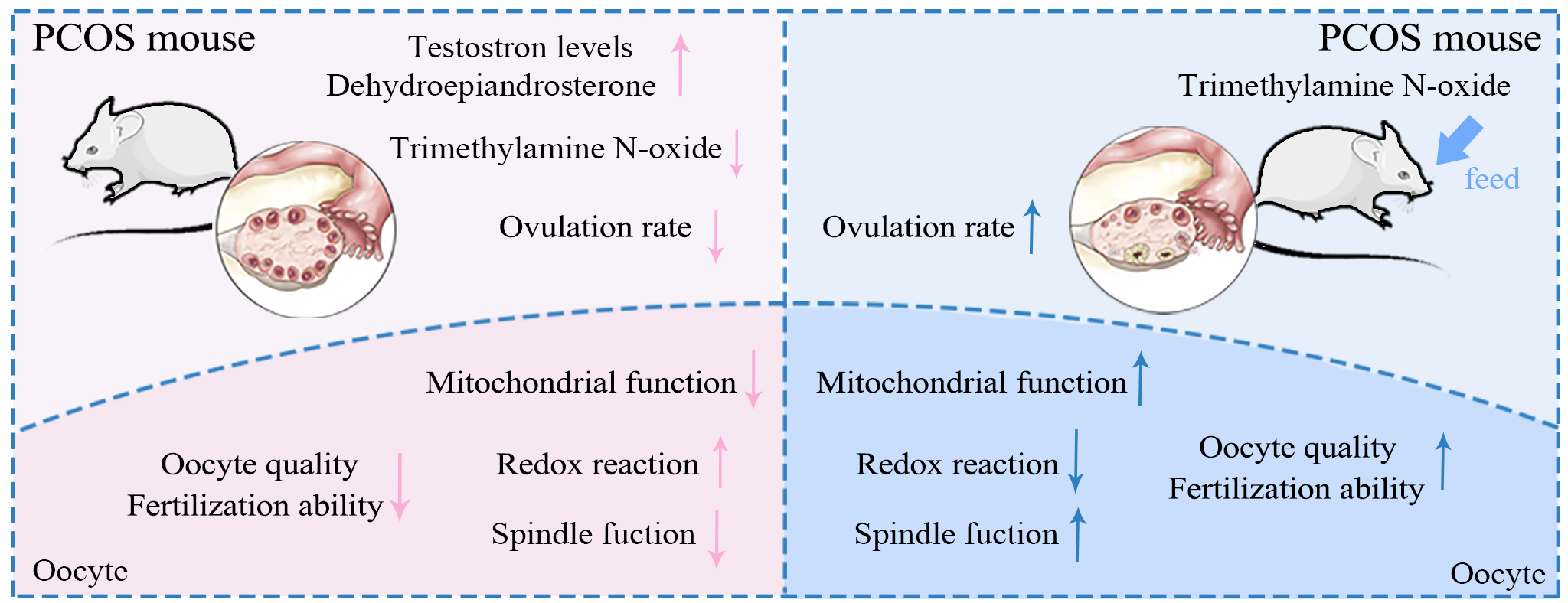-
- Academic Editor
-
-
-
†These authors contributed equally.
Polycystic ovary syndrome (PCOS) has increasingly emerged as a significant cause of impaired reproductive outcomes, primarily characterized by a combination of ovulatory dysfunction and decreased oocyte quality. However, the molecular mechanisms underlying the decreased oocyte quality caused by PCOS and preventative strategies still require further investigation.
All procedures were approved by the Animal Ethics Committee of Chongqing Medical University. We established a mice model of PCOS using dehydroepiandrosterone (DHEA) treatment. The estrous cycle was recorded, and plasma sex hormone and trimethylamine N-oxide (TMAO) levels were measured. Ovarian indices and follicular formation were compared. Time-lapse imaging was used to observe in vitro maturation and blastocyst formation. Reactive oxygen species (ROS), MitoSOX level, and mitochondrial membrane potential were measured to analyze the mitochondrial function of oocytes. Confocal laser scanning microscopy was used to detect spindle function and chromosomes.
Our study found that DHEA-induced PCOS mice exhibited significantly lower plasma TMAO levels compared to normal mice. Consequently, we supplemented TMAO in PCOS mice and found that the abnormal estrous cycle and reduced ovarian function induced by PCOS could be restored. Additionally, TMAO rescued PCOS-induced defects in oocyte maturation, spindle and chromosome morphology, and embryonic developmental potential. Mechanically, we found that TMAO effectively reduced ROS levels by improving mitochondrial function in PCOS oocytes.
Our findings indicate that the reduction in TMAO levels induced by PCOS may be a key factor influencing reproductive outcomes. TMAO supplementation in vivo can effectively enhance mitochondrial function and oocyte quality in PCOS, holding significant clinical importance for improving assisted reproductive outcomes in patients with PCOS.



